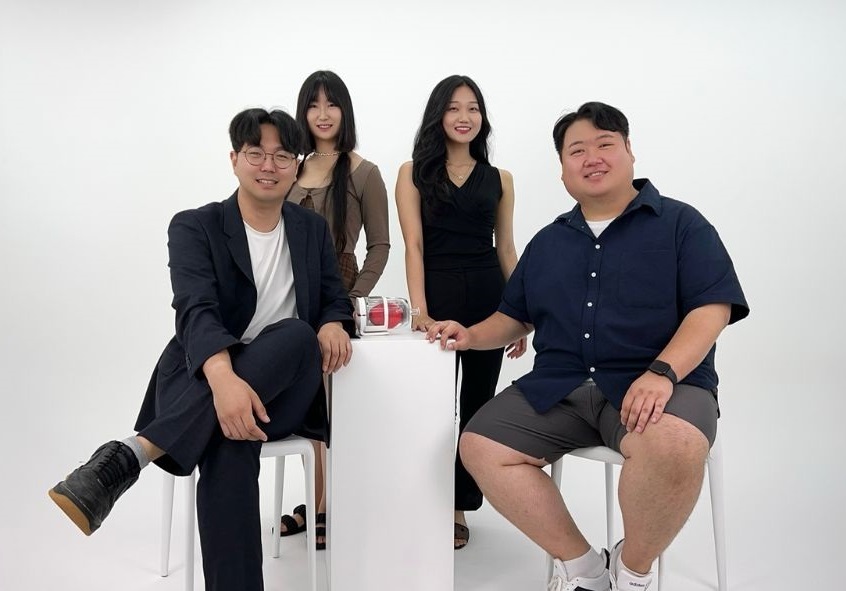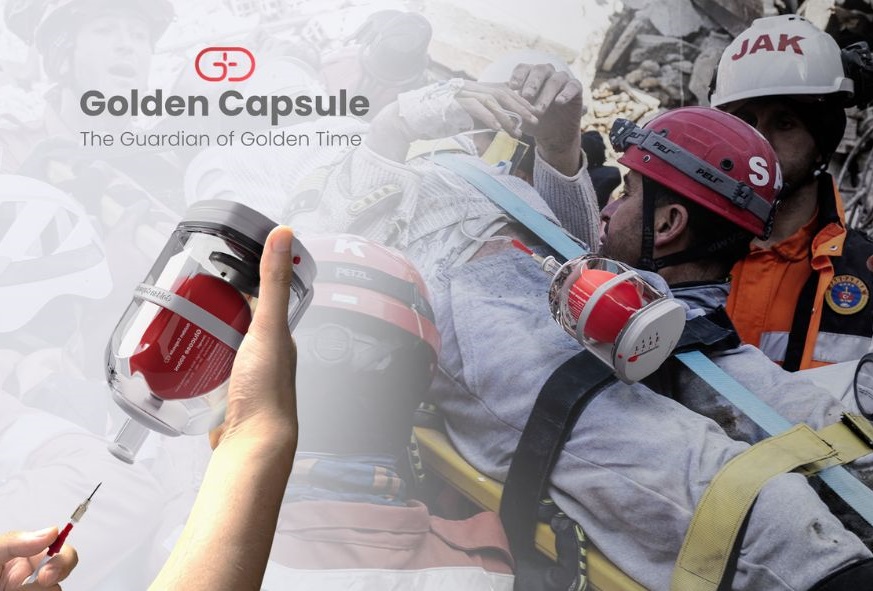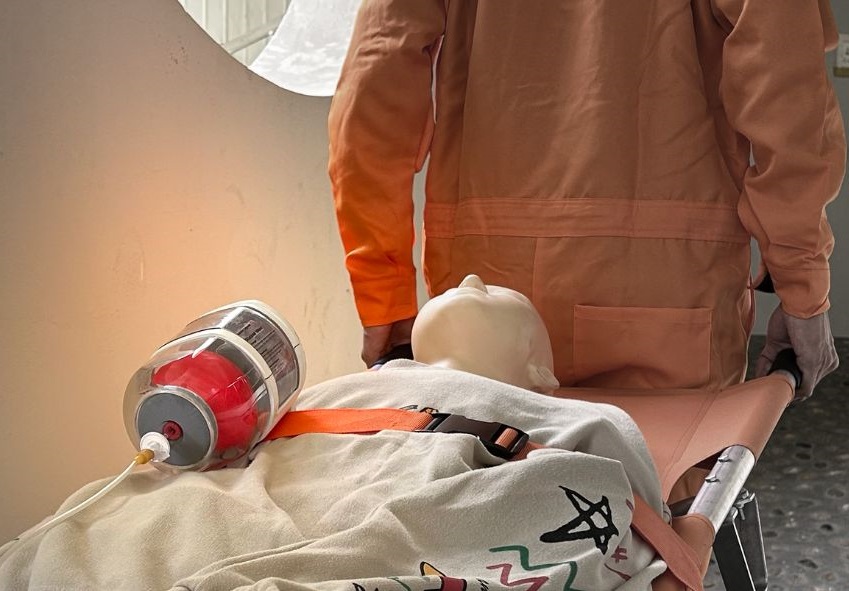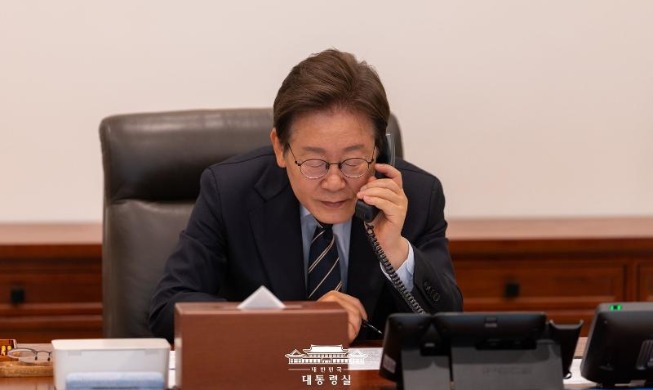- 한국어
- English
- 日本語
- 中文
- العربية
- Español
- Français
- Deutsch
- Pусский
- Tiếng Việt
- Indonesian
By Honorary Reporter Preeti Rawat from India
Photos = Chae Yu-jin
Chae Yu-jin, Bai Yuan, Kim Dae-yeon and Shin Yeong-hwan, four students at Hongik University in Seoul, on Nov. 15 won the prestigious James Dyson Award for the Golden Capsule, a hands-free intravenous (IV) device requiring no power for use in medical emergencies that removes the need for gravity or electricity.
This team is the first from Korea to earn the top honor from the global competition, which showcases innovative inventions by design engineers.

From left are Kim Dae-yeon, Bai Yuan, Chae Yu-jin and Shin Yeong-hwan, the four Hongik University students from the nation's first team to bag the prestigious James Dyson Award.
The team's inspiration stemmed from the problems shown in the Turkish-Syrian earthquakes in February this year, with the aim to offer a practical solution for medical staff working in disaster-prone areas. The man whom the award is named after, Sir James Dyson of the U.K. who invented the bagless vacuum cleaner and set up Dyson. He also praised the Golden Capsule for its impact in resolving a significant problem.
In an email interview conducted from Nov. 24 to Dec. 1, team leader Chae shared insights into her group's invention.
Briefly introduce you and your team.
We attend Hongik University in Seoul, Korea, and have a passion for the convergence of design and engineering. Our team comprises two industrial design students, Bai Yuan and myself, along with two mechanical engineering students, Kim Dae-yeon and Shin Yeong-hwan. Our collaboration was natural as we share a double major in design engineering, emphasizing the intersection of art, design and engineering.
What inspired the Golden Capsule and how did you think up a hands-free IV device?
The inspiration came from diverse experiences including my time being hospitalized during the COVID-19 pandemic, where the inconvenience of traditional IV poles was apparent. Seeing the challenges of treating patients in disaster-stricken areas, especially during the Turkish-Syrian earthquakes this year, further emphasized the need for a practical and hands-free IV solution.
Our team member Bai is from Sichuan province, China, and she shared her experience in the 2008 earthquake in her province's Wenchuan County. She lived through the disaster and witnessed the medical staff's physical stress. This led us to conceptualize the Golden Capsule, aiming to eliminate the limitations of gravity-dependent IV setups.

The Golden Capsule eliminates the limitations of conventional IV set-ups.
What makes the Golden Capsule different from traditional IV setups?
Unlike conventional IV setups, the Golden Capsule operates on elasticity and air pressure and consists of a transparent shell and a medicine-filled balloon.
When did you start working on your invention?
We started it in March this year as a graduation project for design engineering and then spent over two months on research and interviews with 12 medical experts to understand disaster site challenges. Afterwards, we eventually came up with the idea of using an elastic balloon to transport medical water and held successful experiments in less than a month. Our focus then shifted to refining usability and evaluating pros and cons. The challenge was to eliminate the impracticality of gravity-dependent IV setups in disaster sites, leading to our solution of raising water without power.

The Golden Capsule needs neither gravity nor electricity, thus allowing medical staff to focus on patients.
How did you feel about winning the James Dyson Award?
Winning the award was a surprising and delightful experience. Being nominated for the national competition and winning the international round exceeded our expectations. We also met Sir James Dyson through video. Our achievement not only confirmed the Golden Capsule's potential but brought us closer to our dream of becoming design engineers like him. In addition, the competition is a platform to commercialize the Golden Capsule and the opportunity to contribute to emergency medical care globally.
What are your plans for the device?
Our immediate goal is to commercialize the Golden Capsule given its potential to save lives. Offers for collaboration have poured in, and we anticipate real-world applications that transcend revenue, race and country. We seek partners who share our long-term goals and can contribute to realizing the full potential of the Golden Capsule in emergency medical situations worldwide.
msjeon22@korea.kr
*This article is written by a Korea.net Honorary Reporter. Our group of Honorary Reporters are from all around the world, and they share with Korea.net their love and passion for all things Korean.
